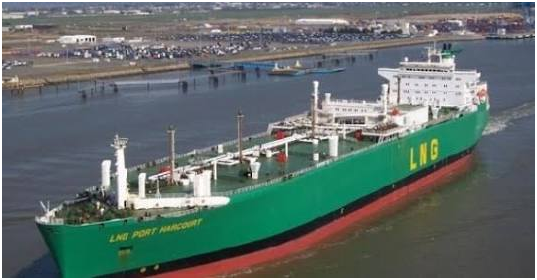TAX incentives by the Federal Government to the Nigeria Liquefied Natural Gas (NLNG) Limited has deprived the nation of about $3.3billion or N650 billion at an exchange rate of N197 to the dollar from 1999 when it began operations, according to a report.
The report by ActionAid titled “Leaking Revenue-How a big tax break to European gas companies has cost Nigeria billions”, criticised the tax exemption arrangement, and extension arguing that even with a normal five-year tax holiday, the NLNG would still have been profitable.
Meanwhile, the NLNG has faulted the report, arguing that the tax arrangement was in line with the Nigerian constitutional provisions. The firm also said under the arrangement “the Nigerian government’s initial $2.5billion investment, bolstered by the associated tax incentives, has so far yielded over $33billion in the form of dividends, taxes and feed-gas purchases for the country over the last 16 years, with an estimated additional $5billion accruing through corporate spend on local goods and services during the same period.”
The Nigeria LNG is a joint venture project by the Nigerian National Petroleum Corporation (NNPC) in partnership with Royal Dutch Shell (25.6 per cent), Total (15 percent), and ENI (10.4 per cent). The consortium was established in 1989 to help Nigeria harness and exploit her huge reserves of natural gas resources for exports.
In a bid to encourage the company realise its objective, the Federal Government had granted a pioneer status to the project, an incentive granted legally to fresh investors that venture into difficult economic terrains to do businesses that positively impact the country’s economy.
Under the pioneer status arrangement, benefiting companies are entitled to exemption from all corporate income tax payment for the first three or five years of operation in its chosen area.
A company with pioneer status is always entitled to deduct the costs of interest payments and investments in physical capital, capital allowances from its pre-tax profits, making it easier for it to borrow to invest in capital equipment.
The report said under the provisions of the NLNG Act approved by the Nigerian government in 1990, the company was not only granted the legal five years exemption, but also an extension for another seven years.
During the period of the extraordinary tax holiday, the NLNG was not only exempted from paying 30 per cent corporate tax on its profits for five years between 1999 and 2004, but also for an extended seven years period till 2012 valued about $3.2 billion or N630.4 billion.
The exemption, according to Action Aid costs the country a total of $141 million or about N27.8 billion.
“Details of the loss through the dubious tax arrangement showed that the Nigerian government lost a minimum of $1,668 million (about N328.6 billion) in revenues through the share of tax the Shell BV should have paid for the period.
“Another $977 million (about N 192.5 billion) was lost through Total, in addition to $677 million about (N133.4 billion) through ENI, based on calculations from the NLNG annual accounts,” it stated. Although, the NNPC share was not covered by the losses conveyed in the report, Action Aid said findings from its investigations showed that during the tax exemption period, the NLNG had calculated what its tax benefits from interest costs and capital allowances would have been if it had paid CIT.
The NLNG Spokesperson, Tony Okonedo, said the NLNG was granted a 10-year tax holiday (between 1999 to 2009) and not five as claimed in the report, adding that it was in line with the provisions of the Nigeria LNG (Fiscal Incentives, Guarantees and Assurances) Act, CAP. N87, Laws of the Federation of Nigeria, 2004 (“NLNG Act”).
He said: “The origin of NLNG dates back to 1965. Successive administrations at the Federal level worked assiduously with several International Oil Companies for almost 25 years before NLNG was finally formed in 1989. This highlights the difficulties associated with setting up a project of this magnitude in a challenging business environment like Nigeria.
“In the face of global concern and mounting pressure on the state of gas flaring in Nigeria, the Nigerian government sought to encourage investment in the utilization of the country’s abundant gas resources. It would be instructive to recall that at the time, LNG was still a very new technology in Africa. Indeed, the establishment of NLNG made Nigeria the first country in Sub-Saharan Africa to possess such new technology and the second such country in all of Africa,” he said.
According to Okonedo, the incentive regime, which is a useful tool in attracting investments in projects of this nature, was also quite instrumental to the rapid growth of NLNG, which was built up to a six train facility from the initial investment for only two trains, as the construction of the additional trains was funded, mainly, by approximately $3billion of returns generated from the project during the tax break period. The current total valuation of the now six train plant is $16billion.
He stressed that the concept of a tax holiday period is not an unusual practice in the global business community, citing that Angola has notably offered as much as 12 years tax holidays to encourage investments in their LNG industry, while other countries like Oman, Malaysia, Qatar and Trinidad have offered up to 10 year tax holidays to attract LNG investments. He added that even more generous tax incentive schemes currently exist in free trade zones across the country.
Okonedo explained further that, “at the expiration of the tax holiday period for NLNG, the company did not have taxable profit for the 2010 to 2012 financial years due to unrelieved capital allowances on qualifying fixed assets acquired during the pioneer period. The capital allowances were duly applied in line with the provisions of the NLNG Act and Companies Income Tax Act, CAP C21, Laws of the Federation of Nigeria, 2004,” Meanwhile, he stated that NLNG paid Education Tax in the sum of $65.08million, $107.04million and $118.59million for the 2010, 2011 and 2012 financial years, respectively.
With respect to royalty payments, he said, NLNG was not involved in the exploration and production of gas and therefore not subject to royalty payments as stipulated by the Petroleum Act. “The reality is that the Nigerian government’s initial $2.5billion investment, bolstered by the associated tax incentives, has so far yielded over $33billion in the form of dividends, taxes and feed-gas purchases for the country over the last sixteen years, with an estimated additional $5billion accruing through corporate spend on local goods and services during the same period. These are all in addition to the $16billion worth of productive assets now domiciled in Nigeria,” he stated.


